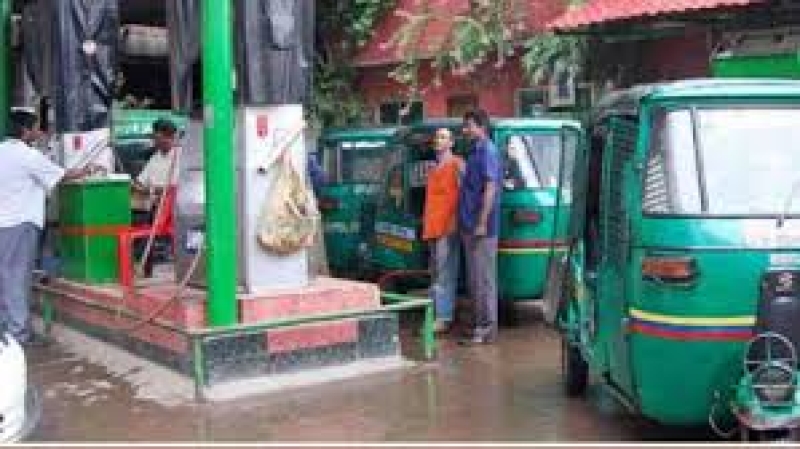- US to Pause Immigrant Visas for 75 Countries Including Bangladesh |
- 11-Year Run of Record Global Heat Continues: UN Agency |
- Gaza Ceasefire Not Enough as Children Continue to Die |
- Bangladesh Sets Guinness Record With 54 Flags Aloft |
- Gambia Tells UN Court Myanmar Turned Rohingya Lives Hell |
Monthly Gas Crisis Disrupts CNG Stations in Sylhet

CNG filling stations in Sylhet are facing their routine end-of-month gas crisis
CNG filling stations in Sylhet are facing their routine end-of-month gas crisis, forcing many pumps to temporarily close and leaving long lines at those still operating. This ongoing shortage, which has plagued the region for over a decade, is particularly acute during the last ten days of each month.
Station owners report that delays in gas supply from Jalalabad Gas make it impossible to meet the demand. Despite numerous requests to address the issue, conditions have only worsened, prompting owners to consider organized protests.
Since CNG services began in Sylhet in 2007, the number of filling stations—now totaling 56—has not increased, even as the number of vehicles has quadrupled. The outdated supply quotas set by Jalalabad Gas limit stations, with penalties for exceeding allocations, often resulting in depletion before the month's end.
Recent reports indicate many stations, including Ambarkhana Jalalabad and Shahjalal Filling Stations, were closed on Sunday due to the crisis. CNG auto-rickshaw drivers have expressed their frustration, emphasizing the hardship caused for both drivers and passengers. They are calling on the government to urgently resolve the supply issues.
Zubair Ahmed Chowdhury, divisional president of the Bangladesh Petroleum Dealers, Distributors, Agents, and Petrol Pump Owners Association, highlighted their repeated appeals for increased gas allocations, which have been met with indifference and cited national shortages as a reason for inaction.

